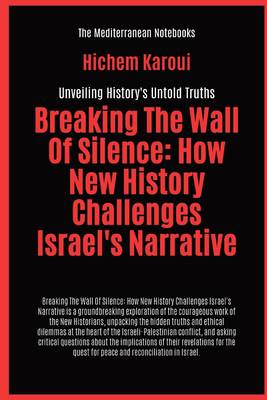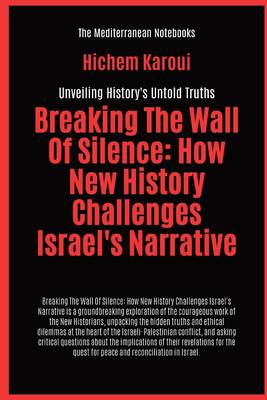
Bedankt voor het vertrouwen het afgelopen jaar! Om jou te bedanken bieden we GRATIS verzending (in België) aan op alles gedurende de hele maand januari.
- Afhalen na 1 uur in een winkel met voorraad
- In januari gratis thuislevering in België
- Ruim aanbod met 7 miljoen producten
Bedankt voor het vertrouwen het afgelopen jaar! Om jou te bedanken bieden we GRATIS verzending (in België) aan op alles gedurende de hele maand januari.
- Afhalen na 1 uur in een winkel met voorraad
- In januari gratis thuislevering in België
- Ruim aanbod met 7 miljoen producten
Zoeken
€ 78,45
+ 156 punten
Omschrijving
This book examines the groundbreaking work of Israel's "New Historians," a group of scholars who, from the late 1980s, used newly declassified state and military archives to challenge the nation's traditional, heroic founding narrative. It explores how their research dismantled long-standing myths surrounding Israel's birth.The text focuses on the pivotal research of figures like Benny Morris, Ilan Pappé, and Avi Shlaim, particularly concerning the 1948 Arab-Israeli War. Their scholarship revealed that the Palestinian refugee crisis was not solely due to Arab evacuation orders, but was also a direct consequence of deliberate expulsions, massacres, and psychological warfare by Israeli forces. Furthermore, they debunked the "David vs. Goliath" narrative by providing a more accurate assessment of the military balance during the conflict.Beyond recounting historical findings, the book confronts the profound implications of these revelations for contemporary Israeli society. It analyses the fierce backlash the "New Historians" faced, highlighting the significant resistance to acknowledging these uncomfortable truths.In light of today's escalating tensions, the work questions whether this critical historical understanding can foster a more empathetic national dialogue and help resolve the current political impasse. Can an honest reckoning with the past lead to a future based on shared understanding rather than entrenched grievances?Ultimately, the book presents evidence challenging the official narrative to provide essential context for the roots of ongoing injustice. It argues that such historical honesty is not merely an academic exercise but an indispensable prerequisite for achieving genuine reconciliation and a just, lasting peace.
Specificaties
Betrokkenen
- Auteur(s):
- Uitgeverij:
Inhoud
- Aantal bladzijden:
- 344
- Taal:
- Engels
- Reeks:
Eigenschappen
- Productcode (EAN):
- 9781787954380
- Verschijningsdatum:
- 14/08/2025
- Uitvoering:
- Paperback
- Formaat:
- Trade paperback (VS)
- Afmetingen:
- 152 mm x 229 mm
- Gewicht:
- 458 g

Alleen bij Standaard Boekhandel
+ 156 punten op je klantenkaart van Standaard Boekhandel
Beoordelingen
We publiceren alleen reviews die voldoen aan de voorwaarden voor reviews. Bekijk onze voorwaarden voor reviews.









